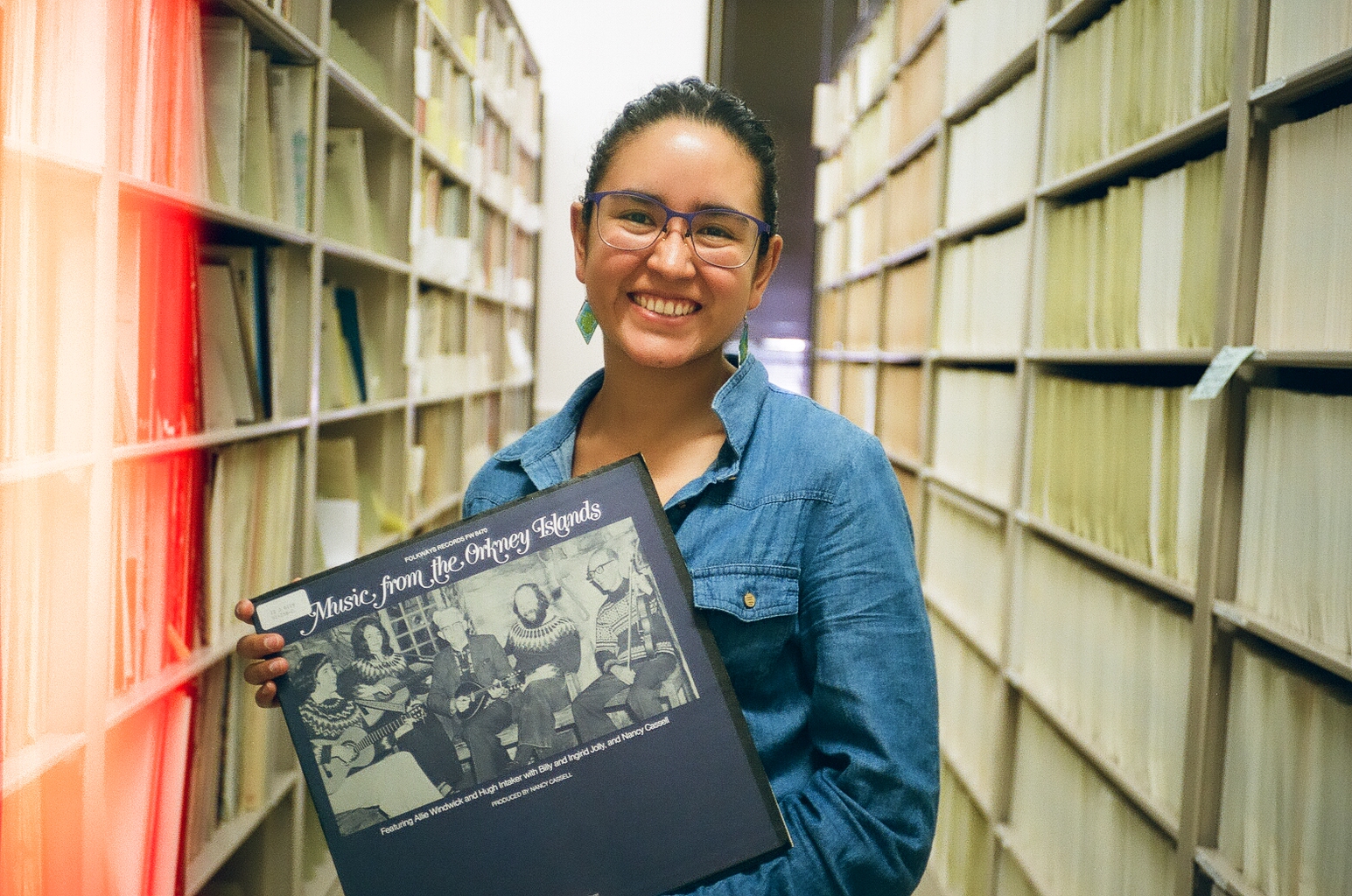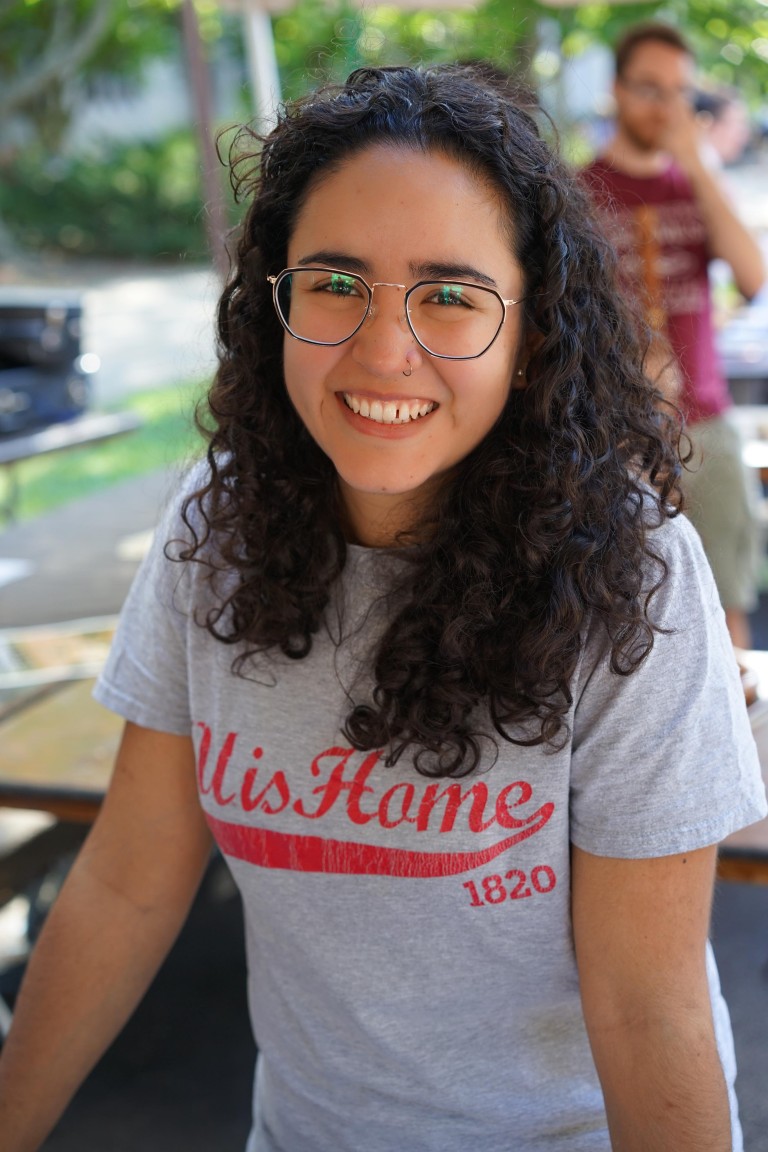
Amelia Lopez Lopez holds up the album "Music from the Orkney Islands" in the Archives of Traditional Music. Photo courtesy of Xiaoshi Wei.
The word “ethnomusicology” intrigued Amelia Lopez the first time she heard it. Finishing her undergraduate work in music performance in Colombia, her home country, Lopez came to visit the Bloomington campus. Because of her interest in studying ethnography and the Afro-Colombian violin traditions, she made the Archives of Traditional Music (ATM) a must-see spot during that tour. She says, “They are a pretty big deal in the field. I was so excited to be there. I couldn’t believe it! And one year later, I was working there,” she exclaims. “It was like a dream.”
Lopez is now a fourth-year Ph.D. student in Ethnomusicology in the Department of Folklore and Ethnomusicology. Before arriving at IU, as a violinist, she had already started researching Afro-Colombian violin music practices, focusing on racism and stereotyping. “As a violin player, I wondered if there were Afro-Colombian musical genres or styles that used the violin, which led me to my research.” Every summer she returns to Colombia, keeping her connections with this research alive.
George List and Friends
The pandemic and the ATM itself changed Lopez’s research path. In her first semester, she was introduced to George List, Director of the Archives of Traditional Music from 1954-1976, by Alan Burdette. List’s research interests included Colombia. Lopez describes List’s research at the ATM as “a big and rich collection, very important for Colombian music scholarship.” In one of her graduate seminars taught by Dr. Daniel Reed, she had to work with archival materials. “It was a challenge,” she says, “because I had never done it before. In the end, I loved it, because it was a fascinating topic. I looked at List’s mobilities: who financed his trips, how he moved around Colombia, and how did he contact his informants, etc. I asked questions like, ‘How did he get interested in going to Colombia?’ After these years of research, I have some hints, but no answer.”
She was hooked on George List for several reasons. Primarily, she feels it was a “duty” to get the information out to the public. “I’m very passionate about public work within academic public work, and List was a big enthusiast for public musicology. That’s why he was engaged in archives, but he also started a set of documentaries, and he had radio shows. I feel that richness is important to highlight. To me, it’s a model of how things have been done and how we spread our research knowledge to the world.”
Another reason is the fact List worked with sister and brother Delia Zapata Olivella and Manuel Zapata Olivella, two incredibly accomplished multi-talented Afro-Colombians important in the defense of the rights of black populations in Colombia. In addition to Delia’s and Manuel’s contributions, Lopez heard George List’s wife, Eve, on recordings, adding insights and asking questions. Lopez’s excitement about hearing others’ voices on the actual recordings is tangible; however, she points out that the work is published under List’s name exclusively. “Witnessing these things second hand is what made me want to pursue it as a dissertation topic.” Manuel, Delia, and Eve are only mentioned at the beginning of work under “Acknowledgments.”
Listening to the sound recordings gives Lopez much deeper insights. “The compliment of the written documentation with the sound is invaluable because with the sound you get some information that is not possible to be conveyed in the written form, frankly. You sense the friendships and the affective dimension of relationships in the field that you don’t get to read about in a book.” Because of her access to the ATM, Lopez gets to witness part of history. It’s what inspires her.

